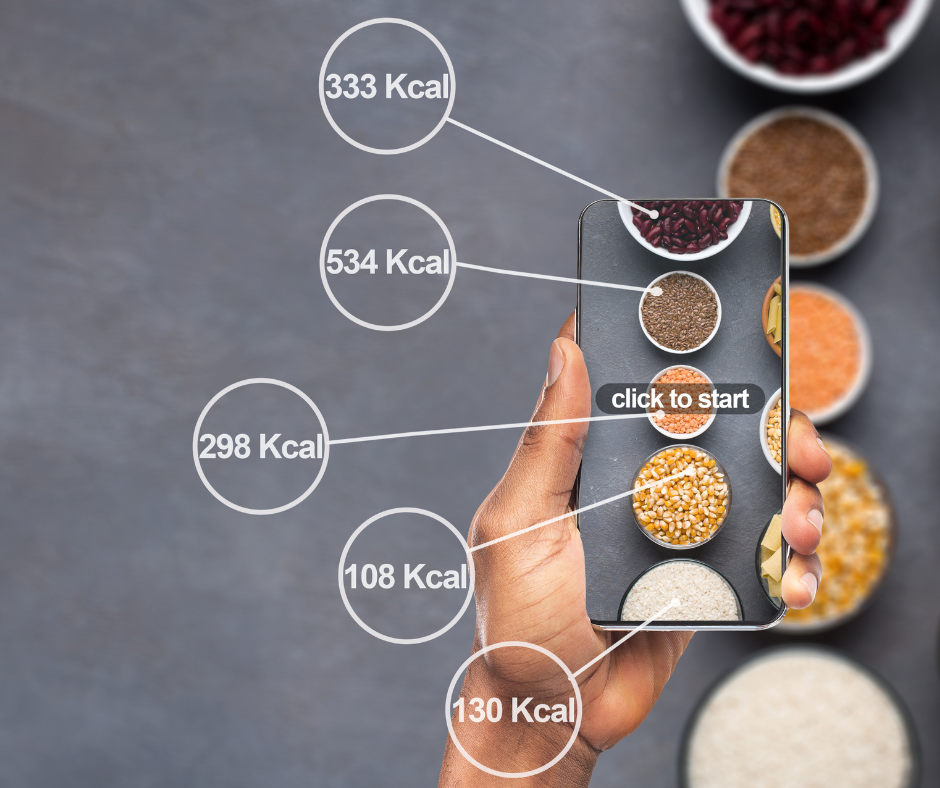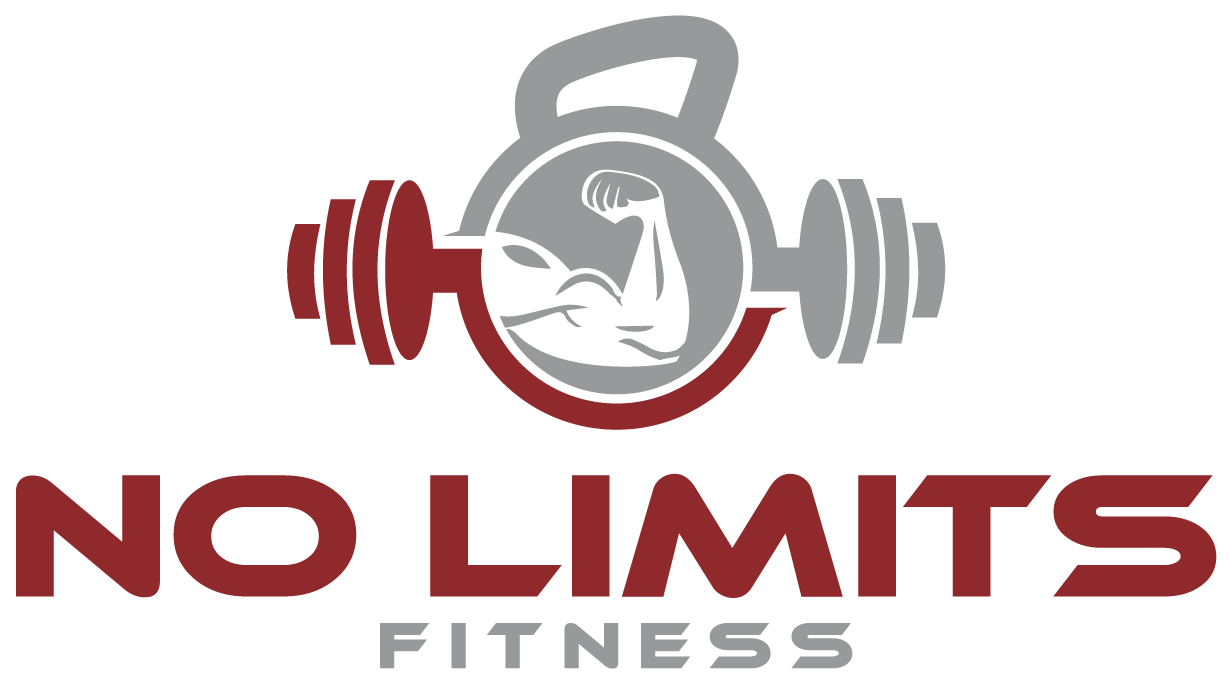NUTRITION

By Juan Perez
•
05 Apr, 2024
One of the first recommendations you’ll hear for someone wanting to lose weight is to begin by counting calories. Although weighing your food and counting calories does work for some people, the reality is that this approach to weight loss has an astonishingly high failure rate. If this strategy is “based in science”, why does it fail more than 95% of the time? The Top 3 Issues With Counting Calories The number of calories in the foods you eat are estimates. This is where the concept of counting calories being “based in science” can be misleading. The FDA allows companies to use 5 different formulas to estimate calories and a standard deviation up to 20% is acceptable. This means that something listed as 150 calories exists on a range between 120 calories and 180 calories. How ripe is your banana? The ripeness affects caloric availability. The second issue is that as individuals we each absorb a different amount of the calories from the food we consume. Thirdly, Americans are notoriously bad at determining healthy portion sizes. Our super-sized culture has heavily influenced our concept of a normal sized portion. The good news is that there is another way to lose weight without counting calories. The Three Pillars of Nutrition Whether or not you’re a card-carrying member of Camp Calorie Counters, the foundation of your nutrition is built upon three pillars: Food Quality, Food Quantity and Food Timing. Food Quality All calories are not created equal. The popular 100 calorie snack bags do not offer the same nutritional value as 100 calories from fruits or vegetables. When the majority of your meals are composed of minimally processed single ingredient whole foods (lean protein, fruits and vegetables), you’re more likely to get the micronutrients your body needs to thrive. Food Quantity As mentioned earlier, Americans aren’t known for our skills at eyeballing healthy portion sizes. Although using a food scale to determine portion sizes can be helpful, it isn’t always practical. This is the reason we recommend learning to use your hand as a guide to determine portion sizes. You can’t take a food scale with you everywhere you go but you’re always allowed to bring your hands!

By Will Matthiessen
•
30 Jan, 2023
At any given point in time, it’s estimated that more than 1/3 of the U.S. population is on a diet. It’s highly likely you’ve previously tried Paleo, Keto, Atkins, Carnivore, Warrior, Mediterranean or some other diet. Dieting seems to be about as American as Fast Food and Apple Pie…which might not be a coincidence. You may have heard of Intermittent Fasting, which isn’t a diet. This is more of a pattern of time-restricted eating. What is Intermittent Fasting? Intermittent Fasting is consciously alternating between pre-determined periods of eating and periods of abstaining from the consumption of calories (food and drink). Diets attempt to reduce caloric intake through restrained consumption, calorie counting, macro counting, lists of forbidden foods and lists of preferred foods. Intermittent Fasting reduces caloric intake by way of time restriction with periods of Fasting and periods of Feeding. Benefits of Intermittent Fasting While most people look into IF for weight loss, there are many other health benefits of fasting including: Decreased Body Fat Preservation of Lean Muscle (with resistance training) Decreased Blood Glucose Levels Decreased Insulin Levels Increased Insulin Sensitivity Increased Growth Hormone Levels Increased Cell Autophagy Increased Mental Focus Decreased Food Related Stress Most Common Intermittent Fasting Protocols There are several different intermittent fasting protocols and each of these have alternating periods of Feeding and Fasting. Intermittent Fasting protocols expressed as numbers will express the Fasting window first followed by the Feeding window. The 16:8 protocol has a 16 hour Fasting window followed by an 8 hour Feeding window. This is the most common form of fasting and in many cases this can be achieved by simply skipping breakfast. This method is the least restrictive and the 8-hour window (11am to 7pm or 12pm to 8pm) allows you to participate in most social eating times such as lunch and dinner. Other numbered protocols are 18:6 (my personal favorite) and 20:4. Alternate Day Fasting has you fasting every other day but eating however you want on the non-fasting days. The most-common application of this approach employs “modified” fasting which allows for the consumption of around 500 calories on fasting days. However, the “modified” fasting can be a slippery slope. Another popular fasting protocol is the 5:2 method which involves eating normally for 5 days and limiting your caloric intake to 500 calories on 2 non-consecutive days. Similar to the Alternate Day Fasting, the days of restricting your eating to only 500 calories can pose difficulties with long term adherence. What Breaks A Fast Technically speaking, consuming any calories will break your fast. To avoid breaking your fast, you’ll want to consume water, black coffee, tea, green tea or a salt water mixture to provide electrolytes. While adding a little creamer to your coffee may not ruin your weight loss efforts, this will limit many of the additional benefits of Intermittent Fasting. We highly recommend LMNT for active people to maintain their electrolyte levels and this becomes increasingly important if you’re fasting. Concerns About Intermittent Fasting Like any other subject, there are some major advocates and detractors of Intermittent Fasting. My research into the subject has been limited to studies with human participants since people don’t always have the same responses in randomized controlled trials as mice. Given the fact that our ancestors didn’t have refrigerators or 24 hour access to food, I believe that an appeal to reason will show that Intermittent Fasting is safe. However, I’ll address the most common concerns with IF. Will Fasting Will Affect My Energy Levels? Research from 2007 found that performing 90 minutes of exercise after an 18 hour fast did not result in any decrease in performance. There are additional studies that have shown no decreases in performance during times of normal activity with fasts lasting less than 72 hours. It should also be noted that doing an extended fast before running a half marathon or any significant change in activity level is not an ideal approach…but I’m hoping that should be obvious. Will Fasting Cause Me To Lose Muscle Mass? One of the many benefits of intermittent fasting is the boost of human growth hormone. This hormone is important for the preservation of muscle mass. When combined with resistance training 3 times per week, the boost in growth hormone from intermittent fasting has been shown to help preserve lean muscle tissue. Recent research has shown that consuming 30 grams of high-quality protein at a meal is the threshold for triggering the process of Muscle Protein Synthesis. At No Limits Fitness, we have helped dozens of people lose weight with intermittent fasting without the loss of lean muscle tissue. Will Fasting Make My Metabolism Slow Down? This is one of the more common myths in the health and fitness industry…and one I personally believed for many years. You may have heard that long term caloric restriction will cause your metabolism to slow down. The truth is that your caloric intake has very little to do with your metabolism. Your metabolism is much more closely tied to your bodyweight…specifically your lean body mass (all the parts of your body that are NOT body fat). The more lean body mass you have, the higher your metabolism will be. How To Get Started There are hundreds of books on Intermittent Fasting and several of them offer a unique approach. However, like many other things, there are ways to do Intermittent Fasting incorrectly which will ultimately prevent you from seeing the results you want. Having personally learned the hard way, I have found incredible benefits from Intermittent Fasting after working with a coach for added accountability . Many of us look to food as a form of stress relief and this can make Intermittent Fasting difficult. If you would like to work with a coach to strengthen your IF skillset, click on the button below for more information.

By Mike Williams
•
23 Apr, 2020
Macronutrients, or Macros, are the nutritional components that make up the foods we eat. Macros contain the essential nutrients that our body needs to survive, along with providing us with energy to function normally throughout the day. There are 3 different types of Macros. Protein, Carbohydrates, and Fats. Everything we eat falls into one or […]
The post What Are Macros? appeared first on No Limits Fitness.

By Mike Williams
•
10 Apr, 2020
Help! I Overeat – and I Don’t Know Why?! Do you ever start eating, or overeating, when you’re feeling upset or stressed, even though you aren’t even hungry? Do you ever start eating, or overeating, just because it helps you feel better emotionally? Kind of like a warm blanket? If you answered yes to either […]
The post Overeating – Emotional and Binge Eating appeared first on No Limits Fitness.

By Mike Williams
•
08 Apr, 2020
It’s no lie that alcohol and weight loss goals generally don’t mix. And, if we’re being honest, there really are many reasons to reduce, or even give up, alcohol from our diets and social habits. On the other hand, having a glass of wine, or whatever your drink of choice may be, is also a […]
The post Can I Lose Weight Without Giving Up Wine appeared first on No Limits Fitness.

By Mike Williams
•
03 Feb, 2020
Picture this: You hit the snooze button one too many times, had a last minute project thrown at you at work, and then sat in an hour of evening traffic. Finally home, you breathe a sigh of relief, head into the kitchen, and decide you deserve a snack after the day you’ve had. Maybe you […]
The post Emotional Eating – How to get a handle on it appeared first on No Limits Fitness.

By Mike Williams
•
13 Jan, 2020
80/20 Rule? What?! You may have heard that abs are made in the kitchen…but just how important are diet and exercise? Maybe you have eaten an extra piece of dessert because you exercised that day, so you feel like you “earned” it dammit! In order to see results at the gym, lose weight or even […]
The post The 80/20 Rule for Diet and Exercise appeared first on No Limits Fitness.

By Mike Williams
•
23 Dec, 2019
Apple cider vinegar (ACV for short) is basically made from apples, sugar & yeast and is put through a double fermentation process. It has also become very popular among natural health enthusiasts. Many supporters claim that consuming just a small amount of ACV can result in all sorts of health-optimizing wonders: Reducing the appearance of […]
The post Apple Cider Vinegar – Healthy or Hyped? appeared first on No Limits Fitness.

By Mike Williams
•
01 Apr, 2019
Magnesium is one of those nutrients we don’t hear about too much, despite the fact that it’s one of the most abundant minerals in our bodies. Moreover, it’s the fourth most abundant mineral that we have! Here’s a little Magnesium 101… So what role does magnesium play? Do we really need to be consuming magnesium […]
The post Magnesium 101: What You Really Need To Know appeared first on No Limits Fitness.

By Mike Williams
•
11 Feb, 2019
What To Eat Before, During & After Your Workout You’ve just finished your workout and you know you need to eat something. But what? Workout nutrition may seem rather complicated but it doesn’t have to be. Here’s the latest on how to fuel your body before, during and after your workout so you can improve […]
The post Fitness Fuel: Workout Nutrition appeared first on No Limits Fitness.
Luci
Doug
Tasha
No Limits Fitness helps busy professionals lose weight, get stronger and have more energy so they can lead the lives of their dreams...even if they've tried before and failed.
SERVICES
CONTACT INFORMATION
© 2024
All Rights Reserved | No Limits Fitness | Privacy Policy
